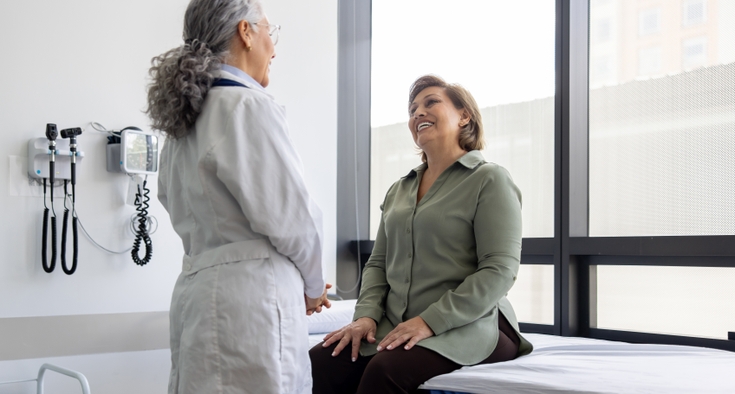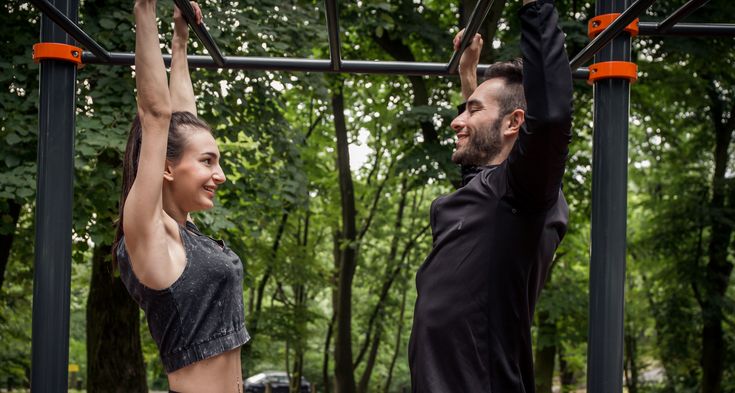Part of aging is knowing how to catch potential problems that can threaten your health down the road.
It’s easy to dismiss pain and fatigue as “getting old,” but many illnesses and conditions like high blood pressure and arthritis can be treated or managed with just a few steps, said geriatric care specialist Dr. Cho Aye of Novant Health Senior Care - Southpark.

“Getting older requires committing to a healthy daily lifestyle,” Aye said. “Concentrating on mobility and exercise, a balanced diet and adequate sleep become much more important to managing overall health as we age.”
In other words, you don’t necessarily have to live with pain or symptoms of unpleasant conditions. The Charlotte-based clinic offers comprehensive care specifically for adults 50 and older, with services including preventive screenings and management of chronic conditions.
Here, Aye breaks down four common aging problems and proactive, effective ways to achieve and maintain a better quality of life.
Find a geriatric care specialist near you.
Falling and fractures
Without at least 30 minutes of regular physical activity every day, our muscles become weak. That’s why it’s so easy for elderly people to lose their balance and fall. Patients should be evaluated by a physician after a fall to make sure their gait is stable. There should also be a conversation about whether physical therapy can help address arthritis, which weakens mobility. If you don’t exercise, just start with a regular walk and work your way up.
Chronic inflammation and bone loss
Many people confuse arthritis and osteoporosis. Arthritis is the chronic inflammation of the joints, while osteoporosis is caused by the weakening of bone density, which can lead to falls and fractures.
Arthritis is a big part of the aging process, especially for people who are overweight. So maintaining a healthy diet and regular exercise can help keep that under control. Watching your weight can also help address high blood pressure and cholesterol with regular exercise and a balanced diet.
Osteoporosis is especially common among postmenopausal women, because their bodies produce less estrogen, a hormone that helps keep bones strong.
That’s why, beginning at age 65, women should make an appointment and be routinely screened for osteopenia and osteoporosis. Aye usually recommends that patients take vitamin D and calcium supplements, and discourages taking others as long as they’re eating a balanced diet. You should check with your doctor before you start taking any supplement, no matter how common and harmless you think it is. Taking a lot of over-the-counter supplements without committing to balanced nutrition will not add much value to your diet and may be harmful.
Heart problems
While growing up in Burma, Dr. Cho Aye knew she wanted to pursue and specialize in geriatric care.
“Back home, I lived with a lot of elderly relatives, specifically my grandparents,” she said. “And that made me interested in helping vulnerable people.”
Aye graduated medical school in 2009 in her native country and later moved to New York, where she completed a residency in internal medicine in Brooklyn and a geriatric medicine fellowship at New York University. In 2023, she joined Novant Health Senior Care - Southpark.
“I have known the nature of the elderly my whole life,” Aye said. “That’s why every day I treat my patients as I would my own family.”
Generally speaking, heart failure is caused by longstanding high blood pressure (hypertension) and high cholesterol. And though it can be hereditary, a patient can help to prevent heart failure and even chronic heart disease (the leading cause of death in the U.S.) by getting their blood pressure, weight and cholesterol under control.
Patients who have suffered heart failure or a heart attack must follow up with a three-month recovery program known as cardiac rehabilitation.
Incontinence
Males and females experience this differently. For males, incontinence is commonly caused by an enlarged prostate, known as benign prostatic hyperplasia, or BPH. Over time, the prostate gland can enlarge and block the urinary tract, and cause symptoms like frequent urination and the urge to rush to the bathroom. (Solutions for eligible patients include a minimally invasive procedure to control leakage.)
Women who’ve had children are more prone to urinary incontinence than women who have not. The history of pregnancies coupled with menopause can weaken the pelvic floor muscles, which support the bladder. Weight management and increasing physical activity are among the options when it comes to managing this.











